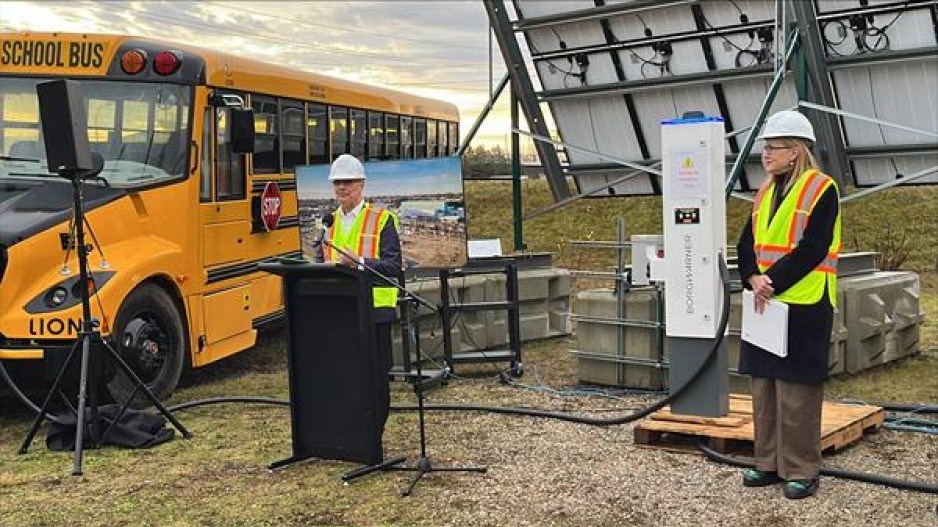A tourism operator that operates buses in Vancouver, Seattle and New York will volunteer its electric buses in B.C. to act as mobile batteries to store power for BC Hydro.
It’s long been suggested that, once plug-in electric vehicles reach a critical mass, they could start acting as an electricity storage solution – storage being something that becomes increasingly important as the mix of intermittent power in a grid system increases. To work, charging infrastructure would need to be bi-directional, allowing for both charging and discharging.
Coast to Coast Experiences (CTCE) has partnered with BC Hydro and its research and testing division -- Powertech Labs -- the Lion Electric Company (TSX,NYSE:LEV), BorgWarner, and Fermata Energy to build what is being billed as Canada’s first bi-directional charging system.
This bidirectional system will allow BC Hydro to use the batteries in CTCE electric buses to reverse charge.
One of the problems with intermittent energy is that it is often produced at times when the electricity demand is low, meaning the power either needs to be stored somehow or sold at a discount to other jurisdictions.
The idea behind a vehicle to grid (V2G) system is that when the vehicles are not being used, they can be leveraged as batteries.
“The initiative lays the groundwork for future deployable V2G charging hubs in Canada and North America,” CTCE says in a press release.
Currently, CTCE has only two electric buses operating in B.C. but the company plans to add several more next year, the company told BIV News.
“The pilot is designed to test the technical feasibility of bidirectional charging and mobile grid infrastructure, opening up the opportunity to monetize electric fleets," the company said in a news release.
“Ultimately, we are creating grid infrastructure solutions for an electrified transportation ecosystem that will provide for an end-to-end V2G mobile power infrastructure,” said CTCE CEO Rob Safrata.
“This enables commercial electric vehicle fleet operators, when their vehicles are sitting idle, to create a high-power, mobile, bidirectional power plant capable of supporting grid resilience, peak shaving, and powering buildings.”




